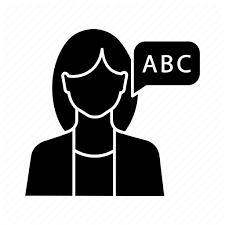The interactive methods and principles of foreign language teaching
Abstract
English language is very important nowadays. More and more people need English to attend universities and colleges, because now everybody have an opportunity to get higher education abroad. New ideas in science and medicine happen so quickly that it is impossible to translate everything into different languages. International relations are extended and strengthened through the exchange of scientific, technical, and cultural information. In this situation, foreign language teaching is a matter of state significance. Teachers of foreign languages make their contribution to all aspects of education of pupils. There are some useful principles and methods of teaching foreign languages. Their role in the upbringing of the younger generation cannot be overestimated. The interactive methods of foreign language teaching is not only new or mysterious, new techniques but also new forms, new principles, new approaches, new methods in teaching process. Interactive training encourages and gives learners to create comfortable condition of learning, also learners feel their successfulness, develop creativity, intellectual and communicative abilities.
References
Kevin Yee. Language Teaching Methods, 2000.
Gladilina I. P. Some methods of working at the lesson of the English language//Foreign languages at school №3 2003
Richards, Jack C.; Theodore S . Rodgers. Approaches and Methods in Language Teaching. Cambridge UK, 2001.
Miralyubov A.A “Theoretical principles andmethods of teaching foreign languages” М.1982
V. Rivers. “The interactive methods of teaching ”
Jeremy Harmer. “How to teach English?” Longman

In submitting the manuscript to the International Journal on Integrated Education (IJIE), the authors certify that:
- They are authorized by their co-authors to enter into these arrangements.
- The work described has not been formally published before, except in the form of an abstract or as part of a published lecture, review, thesis, or overlay journal.
- That it is not under consideration for publication elsewhere,
- The publication has been approved by the author(s) and by responsible authorities – tacitly or explicitly – of the institutes where the work has been carried out.
- They secure the right to reproduce any material that has already been published or copyrighted elsewhere.
- They agree to the following license and copyright agreement.
License and Copyright Agreement
Authors who publish with International Journal on Integrated Education (IJIE) agree to the following terms:
Authors retain copyright and grant the International Journal on Integrated Education (IJIE) right of first publication with the work simultaneously licensed under Creative Commons Attribution License (CC BY 4.0) that allows others to share the work with an acknowledgment of the work's authorship and initial publication in this journal.





1.png)
